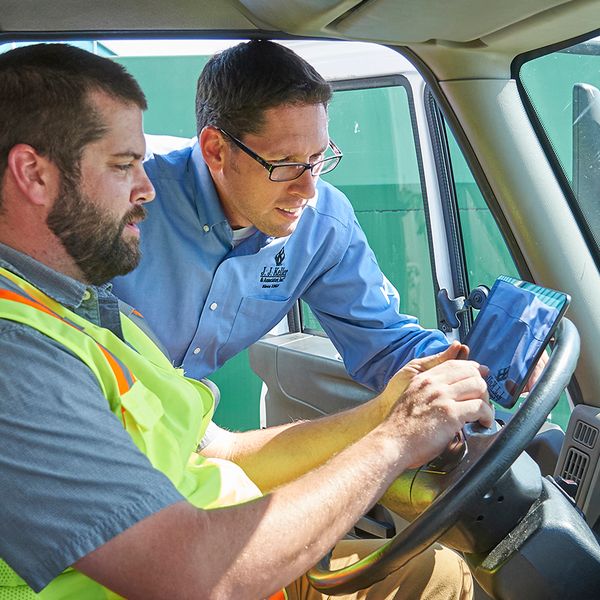Back to basics: Compliance principles for IFTA and IRP
Many of the requirements of the International Fuel Tax Agreement (IFTA) and the International Registration Plan (IRP) work hand in hand. Both programs are designated for interstate carriers in the United States and Canada. Carriers work with a single state or province to file and pay fuel taxes and register their vehicles with all other member jurisdictions.
Staying in compliance involves some diligence, and understanding the following should help you stay on top of the requirements.
Know your qualified vehicles
Identifying which vehicles in your fleet qualify for IFTA and IRP registration is the first step to compliance. Qualified vehicles under IFTA and IRP meet any one of these criteria:
- A vehicle that has two axles and a gross weight or registered gross vehicle weight exceeding 26,000 pounds (11,793 kilograms);
- A vehicle or power unit that has three or more axles regardless of its weight; or
- A combination when the weight of such combination exceeds 26,000 pounds (11,793 kilograms) gross vehicle weight.
Track all miles
Many carriers have questions about what miles must be counted for IFTA and IRP. The answer is: all of them. All miles traveled, regardless of the situation — work- and non-work-related — must be counted.
Maintain proper records
Recordkeeping requirements under IFTA and IRP can be quite exhaustive, but they are the heart of compliance, so it’s important to keep your records organized and accessible in case of an audit. You must keep records in two categories: mileage records and fuel receipts.
IFTA and IRP mileage records
Under IFTA and IRP, carriers must maintain records verifying the miles accrued by a vehicle in each jurisdiction. The operational source documents are known as Individual Vehicle Mileage Records (IVMRs).
Most carriers are now keeping their mileage data electronically through an electronic logging device (ELD). Here’s what’s required:
- Vehicle identification number
- Original Global Positioning System (GPS) reading or other location data for the vehicle
- Date and time and location of each GPS system reading
- Beginning and ending distance readings from odometer, hubometer, or similar device
- Calculated distance between each GPS or other system reading
- Route of the vehicle’s travel
- Total distance traveled by the vehicle
- Distance traveled in each jurisdiction
Most vehicle tracking systems, such as a GPS or an ELD, will capture the required information and provide adequate records in the event of an audit. However, if you have an ELD provider that also captures data for IFTA and IRP, make sure your provider is retaining the right types of records and is keeping them long enough to satisfy recordkeeping requirements. You must also make sure the records are accessible in case of an audit.
IFTA fuel receipts
Maintaining fuel receipts is an additional recordkeeping requirement under IFTA. Fuel receipts must include the following:
- Date of purchase
- Seller name/address
- Number of gallons
- Total amount of sale
- Purchaser’s name/address
- Fuel type
- Vehicle number
Electronic receipts are acceptable under IFTA. Many carriers use fuel cards, and if your company uses them, rest assured that fuel card reports are an acceptable form of fuel receipts.
Keep records long enough
Under IFTA, you are required to keep the records used for your quarterly tax return for four years from the return due date or filing date, whichever is later, plus any time period included as a result of any penalty assessments. These records include all your mileage records, fuel receipts, and unused IFTA decals (if applicable).
For IRP, carriers must keep mileage records for three years after the close of the registration year. Depending on when a carrier renews its IRP, this time period can be up to six and one-half years. For this reason, it’s recommended that carriers keep six and one-half years’ worth of records to ensure adequate coverage in an audit.






















































